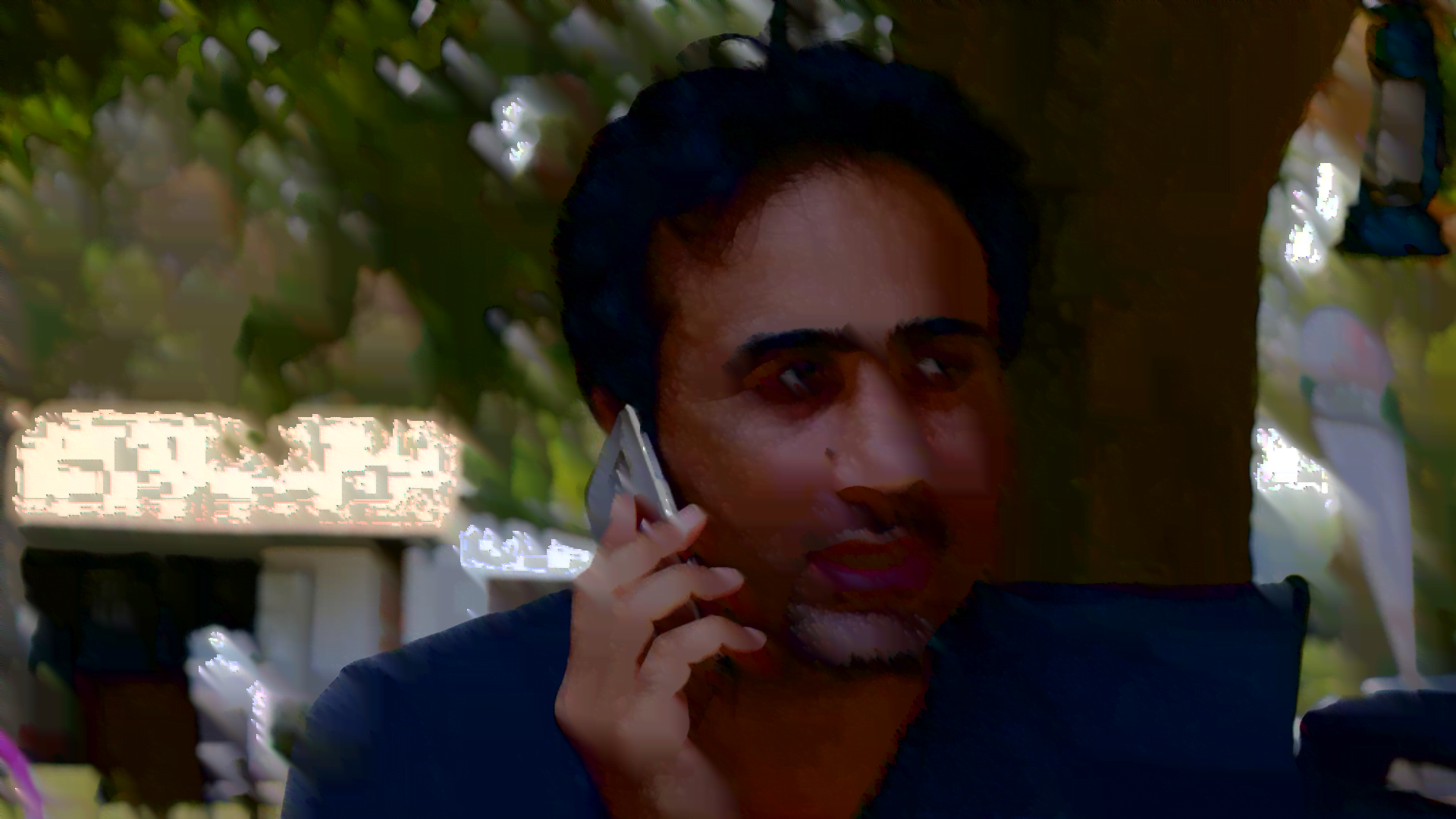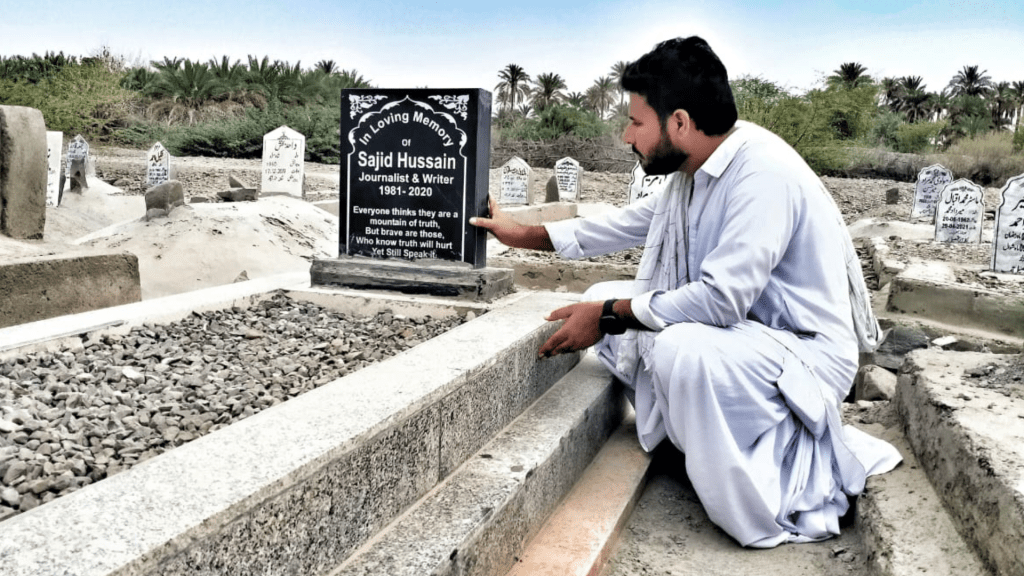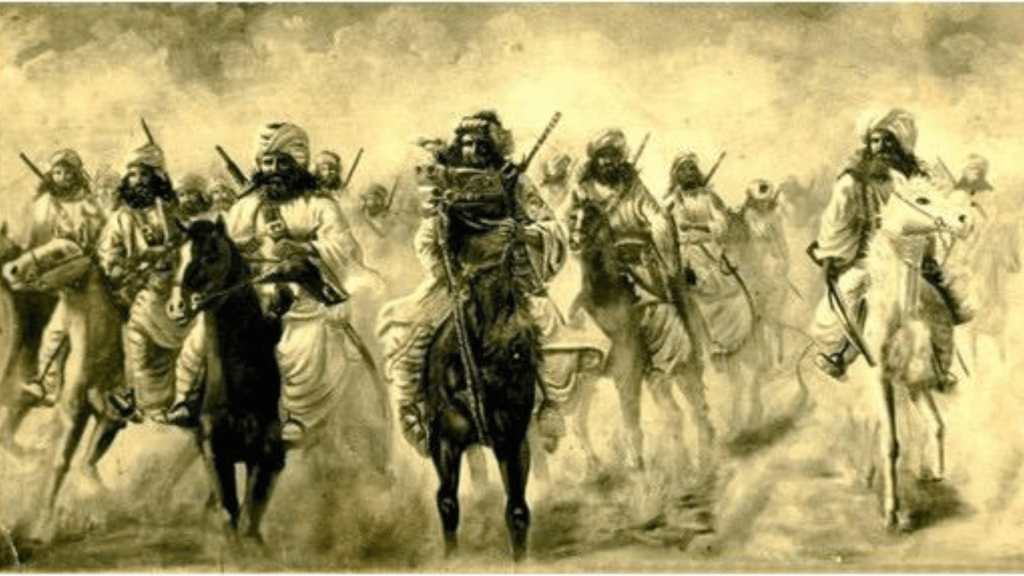I still remember how we used to play cricket in our cramped little apartment in Karachi. We managed to make it quite entertaining even with a plastic ball, and Sajid always cheated to take my wicket. It became a sort of tradition.
“Not fair, Sajid!” I would whine. “You’re cheating! You’re bowling too fast!”
He would grin, his face lighting up in good humour.
“Hey, I’m not cheating…even spinners can ball a bouncer…go and watch Anil Kumble.”
But time, like seasons, passes by, leaving behind only a faint trace of what used to be. Like a faded old book, only the scent remains.
Those days seem like ages ago, an old photograph whose colours have become washed out and seeped into each other.
It has been a year now since he ‘went missing’…eventually leaving us forever. For many he may have been irreplaceable, as a human being, as an activist or a journalist, but for me, he was my brother, my best friend, and no one can ever replace him.
With me, Sajid had this extrasensory perception of what I wanted or needed. I was able to tell him anything and know that he would keep it to himself. He would also give me the best advice. He was a very good keeper of secrets and if I was ever feeling down he could lift my spirits.
To say I miss him understates what it feels to have Sajid gone from my life. I will always feel this huge gaping hole inside me, a vacuum which can never be filled. I only wish I can carry forth his legacy.
Sajid was a lover of art in all forms.
If our conversations started with academics or philosophy, they usually ended with movie or book recommendations. We both loved watching movies for sure.
When I was living with him in Quetta a decade ago, I used to steal his laptop and would go through his collection. Somehow all of those have stayed with me – Gangs of Wasseypur, Gulaal, GoodFellas, Scarface, but perhaps Martin Scorcese’s The Irishman would have its special place in my memory. It was the very last one we discussed.
Sajid always had the makings of a linguist. In my younger days, he teased me for my Balochi – it was tinged with the typical Karachi accent. In those days I used to think that Balochi was not a language that I was interested in. But with time Sajid inspired me to love it. As I grew up, I wanted to impress only one person – not my father or mother, or even my other brothers – only Sajid. I was in my teens when I began reading what he wrote. I got so obsessed with his writing that I used to wait for his write-ups endlessly.
I felt myself swelling with pride when Sajid was mentioned in my class. I was attending class once and a student happened to ask our professor his recommendation of a writer. He smiled and pointed at me, “Read his brother’s articles,” he said. “Sajid Hussain is one of the finest writers not only in Balochistan, but in Pakistan.” I got goosebumps.
“Why Sajid?” I asked my teacher later, trying to understand why my brother was mentioned specifically.
“Because he happens to be one of those rare writers who are honest when they are writing,” was the reply I got. It set me thinking.
People like Sajid are very rare, especially when it comes to Balochistan, where the literacy rate is low, and people do not even have the space to express themselves. Talking about certain things is a taboo, especially if you differ from the status quo, even the political government. There are fewer who even talk about the issues that plague the people over there. Times are bad, when speaking out results in torture and death.
But Sajid always went against the grain. It was surprising that such a quiet, soft spoken man could ever end up in the cross hairs of the rulers, but he did.
And that is why I guess he was born to be a writer. He wrote extensively about enforced disappearances and the insurgency, even after he was threatened and intimidated. He became a voice for the voiceless, but for that he sacrificed his own life. He had to leave his home behind, his family – a loving wife and two lovely children – but he stood for a cause and like every true revolutionary, he would have nothing interfere with it.
He left the country, wandering around the world like a nomad, trying to make sure that his people get the justice they deserve, continuing to speak for them. Sadly though, when it came to his own life, he never got the justice he deserved.
In 2017, Sajid got some kind of stability in his nomadic life. He finally made it to Sweden, which is considered a haven for journalists. Two years later, in 2019 he was granted asylum. I wish he had never gone to Sweden, to that ‘haven for journalists’. In that very year, he disappeared only to be found dead later.
Sajid’s death is not only a great loss for his family but it’s a great loss for Balochistan and Balochi literature. I mean these are big shoes to fill. What makes him different than other writers? His honesty.
I wrote a piece, “The missing link between us and the world”, when he went missing on March 2. I hoped and waited that he would return soon and read my piece then tell me in his heavy voice, “Beta, you can do better”. I waited for him to criticize me. He had such high standards that I almost never dared to write anything; it took a lot to impress a man like Sajid. But somewhere deep inside though, it disturbs me that he never read the piece I wrote about him.
When he went missing too many thoughts ran through my head. What is he doing right now? Has he eaten anything? What’s he thinking of? Maybe he is stuck in some hospital because of Covid-19. Have the police got him? Are they torturing him?
These repetitive thoughts caused me serious depression. I was stuck inside them, entangling myself more and more and they arose more frequently.
I have always thought of myself as a strong person but my brother’s death has made me realize that I am not. After a wait of several months, when they finally brought him back to his hometown in an ambulance, I lost it. It was a very traumatizing and confusing time for all of us. I was shivering with fear, seeing his coffin in front of me. My whole body was trembling but, in a strange way, I was also ‘happy’ to be able to receive the body of the only person I ever cared about, thinking that he was finally at home instead of being alone in a strange and distant land. My brother told me to stay calm and strong. “He’s back,” he told me. “He is with us again.”
It was difficult to stop ourselves from the grief that had perpetuated. Everyone was hugging his coffin. I was standing in a corner panicking, not knowing what was going on. My brother hugged me and tried to calm me down. Even little Shahan and Taheer were holding me. Their happiness about their ‘Baba’ being home was like a deep gash in my heart.
He used to call me ‘Beta’.
How are your studies, beta?
Beta, have you read this book? Beta, have you applied for the scholarship I told you about?
At that time I would tell him, “Bro, I am a grown-up now…why call me ‘beta’?”
Today, I miss being called ‘beta’.
I miss you deeply, Sajid. I feel you within my heart. You are always by my side. Ever since you went away life has never been the same but still, it comforts me to know that one day we will meet again, brother.



